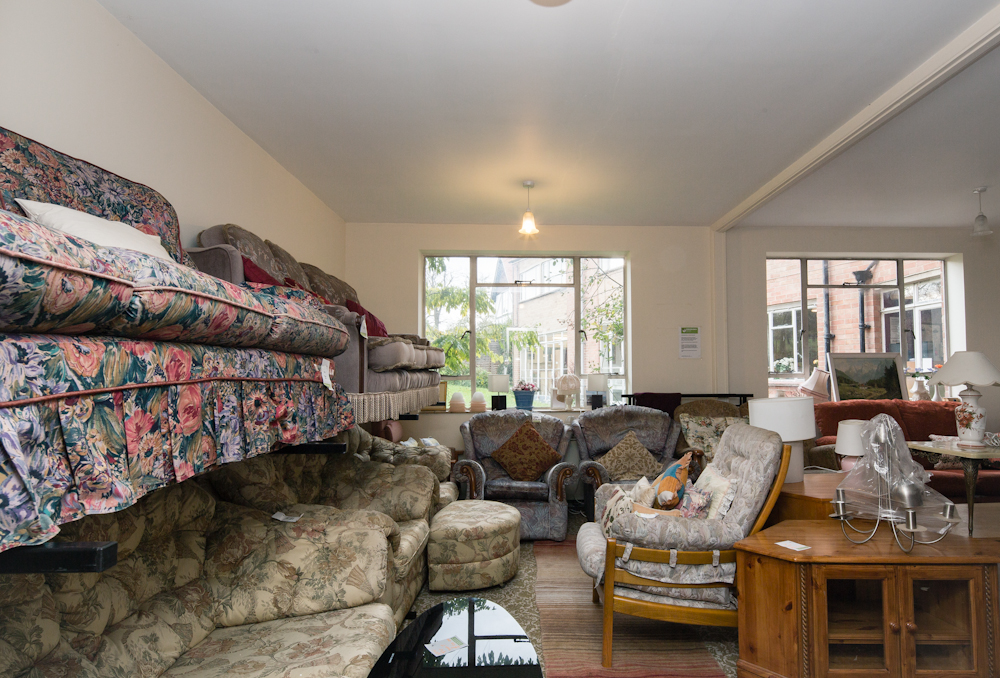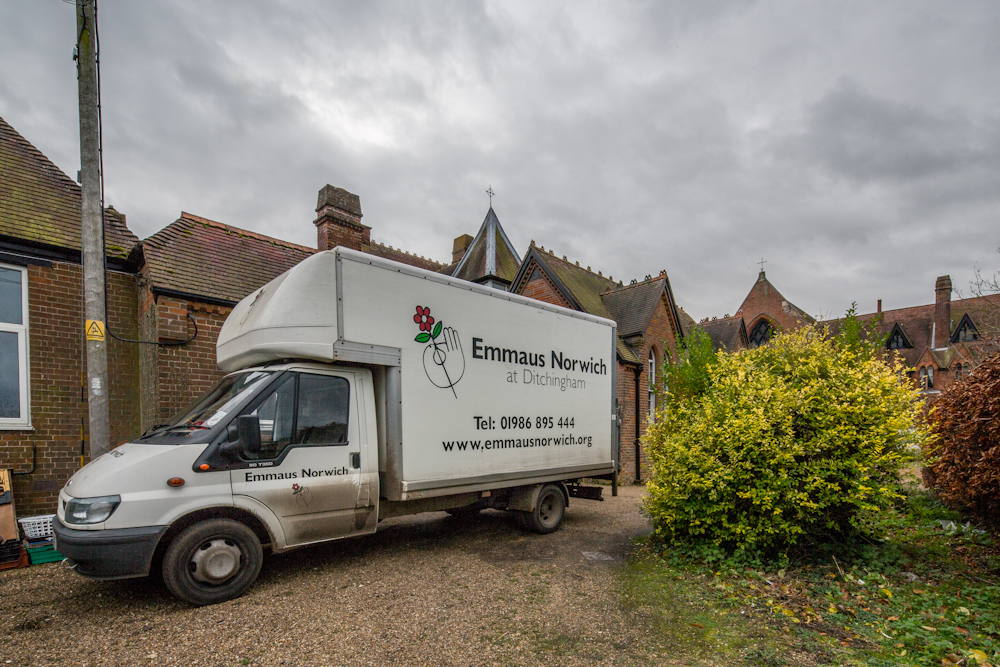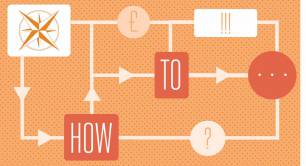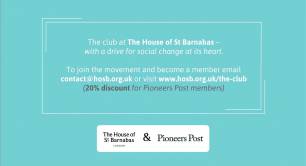For sale! Stigma-busting furniture restored by the homeless
Old chairs and sofas are a lighter load to bear than the stigma attached to homelessness for the people working in home clearance and furniture restoration at Emmaus Norwich. Ellie Ward takes a tour of attitudes to homeless people across the UK and retreats to the Norfolk countryside to meet Cathy Newby, leader of the Emmaus Norwich community, where a home, a job and a supportive ethos offer a path out of homelessness.
Books are stacked from floor to ceiling in one room, wardrobes dating back to all eras line the walls of another and a former kitchen is filled with electrical goods. Everything in this mish-mash of household items has been either recycled or up-cycled and is up for sale. This is Emmaus Norwich, the social enterprise hidden away in rural Norfolk.
Emmaus Norwich is a retail business which meets the demands of local consumers, whilst simultaneously providing a home and a place to work for people who have experienced homelessness. It is an independent charity and a social enterprise that is also affiliated with Emmaus UK and Emmaus International. The first Emmaus community was founded in Paris in 1949. Forty years later, in the early 1990s, the first community in the UK was set up.
Each Emmaus community is unique but they are united in their mission to combat homelessness. In the UK there are 24 communities, all of which have at least one shop or social enterprise, such as a gardenening business or a cafe. Cathy Hembry, community leader, explains: “We are very different in terms of our principles from many homeless charities because what we look at is what people can offer and contribute rather than what they need.”
Although the local community have been supportive towards Emmaus Norwich, according to Cathy, attitudes towards homelessness across the UK are less universally positive. A report by the charity Shelter found that 45% of people asked in a Scotland-wide survey agreed with the statement that 'most homeless people could find somewhere to live if they really tried'.
There are a lot of moves to criminalise rough sleepers and to hide the issue of homelessness.
Another report by the University of Cambridge involved asking people from Cambridge what adjectives came to mind when they thought about homelessness. The responses, which included words such as 'begging', 'drinking' and 'violence', pointed to a general societal representation of homeless people as a social problem.
Homelessness also became the subject of a public and media outcry in London recently when metal spikes were installed outside a block of luxury apartments in Southwark to deter individuals sleeping rough. Mark O'Brien is one of Emmaus UK's project managers who is currently gearing up for the opening of a new Emmaus UK outlet in East London. He says that despite the outcry, "these spikes are unfortunately nothing new".
He continues: "If we look at every park bench in London pretty much, they've had dividers built into them to prevent people sleeping on them. There are a lot of moves to criminalise rough sleepers and to hide the issue of homelessness. However, the media backlash against such visable measures was encouraging."
Gaining self-worth
The effects of homelessness are both physical and mental. Research by Crisis found that nearly a third of the people they spoke to who had experienced homelessness, said being homeless had led to depression, mental health problems and anxiety. Emmaus Norwich counters this by providing a sanctuary where people can rebuild their lives through their involvement in the day-to-day operations of a business.
 Emmaus Norwich showroom in Ditchingham, Norfolk. Photo credit: Emmaus Norwich
Emmaus Norwich showroom in Ditchingham, Norfolk. Photo credit: Emmaus Norwich
The community of ‘companions’ at Emmaus Norwich organise house clearings through which they collect items that can then be resold at their showrooms. The model offers the companions a wide range of job roles to take on. “The work spans logistics, retail, display, warehousing, often safety testing and customer service,” Cathy details. “The idea is that people gain a sense of self through the contribution they make.”
Some companions stay for just a short period, using Emmaus Norwich as a stepping stone to employment elsewhere, whereas others will remain within the community for the foreseeable future, developing their skills and moving into positions of responsibility within the business. This is one of the greatest benefits of social enterprises working towards self sufficiency –independence.
Cathy explains: “Most supported housing projects are short term or they have resettlement goals of around two years, but because our activities aim to be self supporting, we can do it the way we think works for people. This means we can take a really individual approach. We also don’t have a local connections policy, which is often a part of other organisations’ funding conditions. It says you can only take people into supported housing projects if they have a local connection to the area, but we don’t operate that way. We’ll take anybody based on their need and what they can contribute to the community.”
 Emmaus Norwich home clearance van. Photo credit: Emmaus Norwich
Emmaus Norwich home clearance van. Photo credit: Emmaus Norwich
Grand Plans
Cathy’s passion for this project is indisputable and seems to have developed over the many years she has spent working with homeless individuals living on the streets in the Cambridge area. She is working to expand the Emmaus Norwich community: “We are currently putting in place a business plan. We have room for seven companions upstairs right now but by the end of December we should have room for an additional 16.”
We’ll have a restaurant, a garden centre, workshops and up- cycling going on...Grand plans!
The community was offered the convent building located next to the original premises for the business, by the Sisters of All Hallows on a 99-year lease. Touchingly, history is almost repeating itself as the convent was previously used a place of refuge for the homeless and for working prostitutes.
As well as welcoming more companions, Emmaus Norwich hopes to expand the offerings it can make as a business – with the ambition that the services it offers will make it 100% self-funding.
Cathy says, “Our objective will also be to develop our activities on this site so there is a more diverse offering which encourages people to come as their destination and then stay for around half a day. We’ll have a restaurant, a garden centre, workshops and up-cycling going on. Then we’ll have satellite retail units elsewhere which we hope will drive people to this destination. Grand plans!”
The Emmaus model – locally, in the UK and internationally – demonstrates both the financial and social benefits of incorporating a good business model into the core of charitable work.
In its 2013 end of year annual report, Emmaus UK writes that a social return on investment study of the Emmaus model, carried out by Just Economics, indicates that for every £1 invested in Emmaus communities, £11 is generated each year in social, economic and environmental benefits to companions, the state and local communities. The report also sets out Emmaus UK's strategic objectives over the next four years. They include increasing the number of companion places from 600 across 24 communities to at least 750 nationwide by 2017. As Cathy Newby says: "Grand plans" indeed.
Photo credit: Ben Seidelman, flickr.

![[file:field_file_image_alt_text]](https://www.pioneerspost.com/sites/default/files/styles/node-teaser/public/images/article/4521107971_33c3d239dd.jpg?itok=aLZfWt8u)

